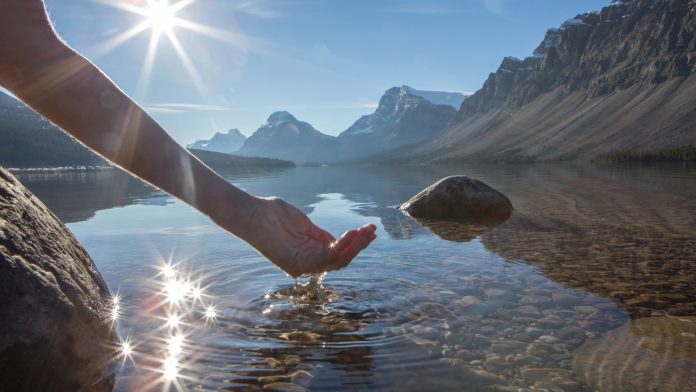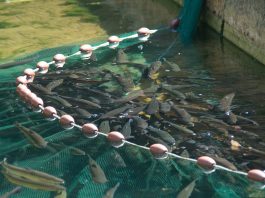A collaborative research team including the University of Barcelona analysed the current knowledge regarding salinisation and created a guideline to improve the understanding of the impacts salt has on water ecosystems worldwide.
This paper has been published in the journal Trends in Ecology & Evolution. First author, postdoctoral researcher David Cunillera-Montcusí, and one of the co-authors, Serra Hunter lecturer Miguel Cañedo-Argüelles, are both members of the Freshwater Ecology, Hydrology and Management Research Group (FEHM) at the University of Barcelona.
The article was a collaborative effort and exists from the participation of the teams from the University of Vic, such as, Central University of Catalonia, the Catalan Institution for Research and Advanced Studies (ICREA), and the National Museum of Natural Sciences (MNCN-CSIC), among other institutions.
The research team recommends a research agenda for the international scientific community that challenges the most urgent needs from a global, regional, local, and temporary perspective, with new methods specifically including the main shortages in this field of research.
How are increasing levels of salinisation impacting ecosystems?
The level of salinity in freshwater habitats, such as rivers and lakes, is increasing and posing a global threat to the conservation of biodiversity and natural habitats worldwide.
Human activities such as mining, intensive agriculture, and the rise of the sea level caused by climate change, are increasing the concentration of salt in continental waters to the highest levels ever documented.
Furthermore, it has been observed by scientists that salt pollution alters the natural habitat, which caused loss of species, dispersal of invasive organisms, and the alteration of the cycle of nutrients.
As well as this, salinisation damages the ecosystem services that are responsible for providing society with lakes, streams, and basins. However, despite this evidence, there is not enough scientific knowledge to predict the consequences on freshwater ecosystems.
How is the environment impacted by this salt pollution?
Currently the knowledge on salinisation is unequal, depending on the geographical area. For example, the impact of salt applied to the roads in order to prevent ice formation has not yet been studied in Europe, while it has been largely studied in North America.
Thus, the most remote areas of Africa and South America have not yet studied the topic, despite the increasing salinisation factors. Overall, scientists have noted that a significant amount of the current works ignores the small freshwater habitats such as ponds, which are important ecosystems in the regional biodiversity.
Furthermore, researchers have observed a lack of information on not only the impacts of different types of salt on water environments, but also its environmental influence at a regional, landscape and ecosystem scale (this includes greenhouse gas emissions and nutrient removal).
Additionally, a majority of studies focus on water invertebrates, while there is still minimal knowledge regarding the impact of salinisation on microorganisms that drive the cycle of nutrients and are at the top of the water food pyramid (these include fish, reptiles, and amphibians).
“Within the study, we worked on a research agenda with the most urgent gaps to fill and proposed several ways to tackle them from several perspectives. For each perspective we mention three main focuses and suggest experiments, methods and aspects that will foster new studies to advance in this field,” noted Cunillera-Montcusí.
How can these issues be addressed in the future?
“The global tendency of lakes and streams is a great challenge for freshwater biodiversity, the functioning of ecosystems and human societies that depend on them,” added Cañedo-Argüelles.
“To address this challenge, we need a joint effort of the scientific community, practitioners, local communities and policy makers,” said Sandra Brucet, ICREA researcher from the University of Vic – Central University of Catalonia.
Miguel Matias, researcher at MNC-CSIC, concluded: “With the collaborative effort of the international team of scientists that published the review paper, we want to promote this global effort in order to advance towards this direction and raise interest for this global problem that will lead us to a saltier world with many salinised lakes and rivers, and for which we must prepare.”









